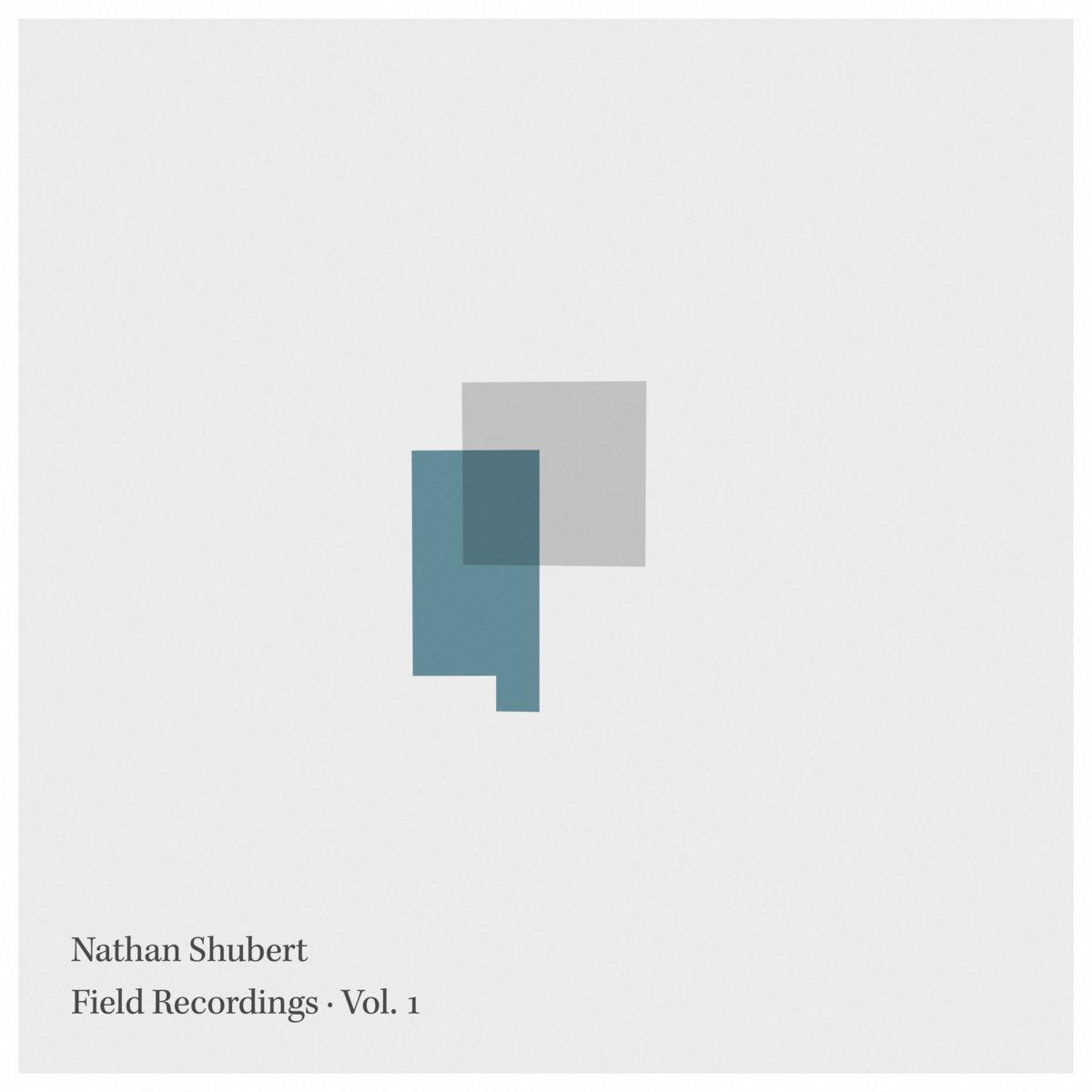Nathan Shubert’s Field Recordings, Vol. 1 catches and savours ordinary sounds. This attention to the imperfect and mundane is fundamental in the piano-centric landscape of Shubert’s work, including his other 2019 album, named When You Take Off Your Shoes. However, in Field Recordings, Vol. 1, Shubert moves away from the piano and into the spaces and noises of a trip overseas while maintaining the memory-like intimacy of his music. Each track is named for the place it’s recorded, like “Park Bench in Hornstull (59.318°, 18.026°),” or “Stream Outside Frankfurt (50.186°, 8.691°).” The record begins on an Icelandair plane in Vancouver, and leads the listener through Sweden, England, Germany and the Netherlands.
Most of the tracks are less than two minutes, some recorded thousands of kilometres apart and others with only a few steps between them. But the record never feels disjointed as it travels quickly between countries, with transitions often melting into each other. Time is a prominent theme; each track feels like a moment drawn out longer than it was born to be. Almost half of the recordings are of in-between places like train stations, ferries or planes; the rest in a spot where you would take pause, like in a park or by a stream.
Certain sounds inevitably recur throughout the record: muffled conversations in numerous languages, dragging footsteps and the beeps and bells that direct pedestrians. “Birds in Victoria Park (51.539°, -0.038°),” the record’s longest track, is strikingly nostalgic without being sentimental, featuring varied yet persistent birdsong and the occasional far off whirring of something that doesn’t feel like it matters. A sense of loneliness pervades most of the album, but in “Leicester Station (51.538°, 0.045°)” and “Oxford Circus (51.515°, 0.141°)” the seamless tracks’ sounds of echoey rails and surging commuters make the feeling especially apparent.
These recorded moments possess the kind of quiet beauty of a house or tree that you walk past every day and never noticed until now.
Shubert’s album never eavesdrops or even celebrates. There’s no initiative or agenda. Instead it basks in the chaos of the space around it. But these tracks are not ambient noise meant to desensitize the listener. They’re something to be still with, an opportunity for meditation unprompted by crafted lyrics or melodies. Use them to create your own place, somewhere that you’re meant to be.


